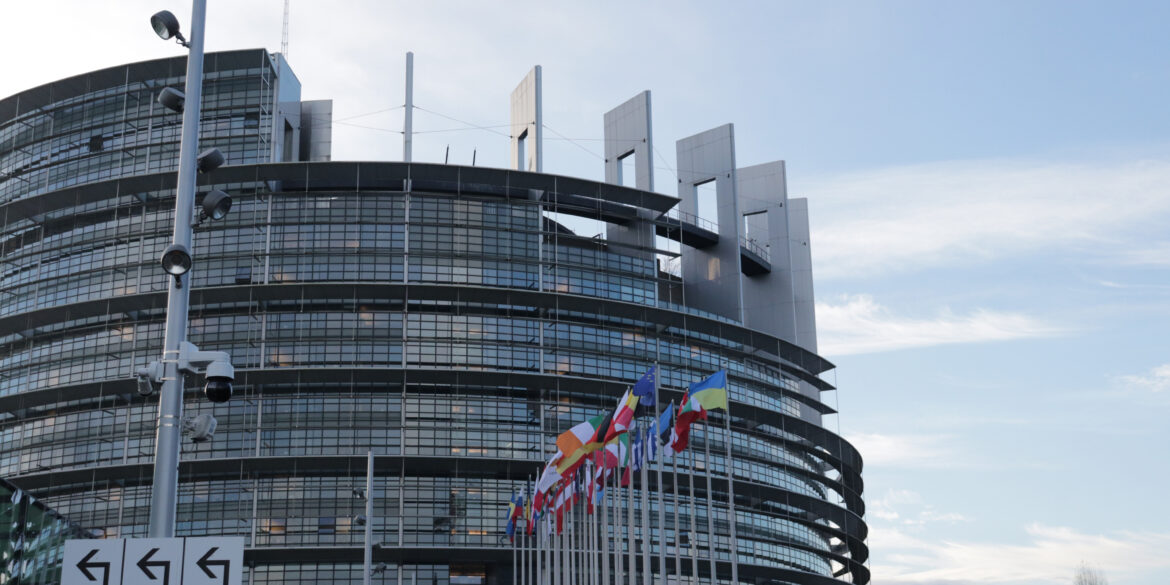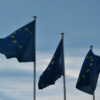“Europe has been worrying about slowing growth since the start of this century. Various strategies to raise growth rates have come and gone, but the trend has remained unchanged”. These are the words of Mario Draghi, renowned Italian economist, in his 2024 Draghi Report. In it, he emphasized the benefits of the U.S. economic model, where risks are taken more often. Moreover, he encouraged Europe to develop a similar mindset. One worrying choice of words he made was that Europe is in a period of “doom and gloom.” But one thing is for sure: this is not the only truth. Still, there are some economic bright spots.
CHAPTER 1: Doom and gloom
1.1 There is enough money, but Europeans invest their capital into the imaginary mattress
First and foremost, let’s face the facts: you need money to further develop your ideas into real business. Because you can have the greatest idea ever; if you are not investing capital into this idea, it cannot become a success story. The latter is something America understands and applies very well.
The imaginary mattress of Europeans
It would be wrong to think that there isn’t enough money in Europe. There is in total 33 trillion invested by Europeans, they have an incredible amount of money. It’s a rich continent. The problem is that the money is not being invested in innovation. Most Europeans put their income into savings in a bank account for 2 %. This leads to a situation where much of Europe’s potential capital is in ‘the imaginary mattress’. This means that for example European start-ups are being forced to go the United States for venture capital funds. According to Clark Parsons, this has a negative impact on Europe.
“That also means that if Spotify goes public and makes a lot of money for the founders and investors, that money doesn’t go to the Belgian pension fund holders but instead to the American pension fund, because they invested in the first place. In other words, our start-ups and scale-ups are making other people wealthy instead of Europeans”, says Clark Parsons.
The American mindset
The American businesspeople are often associated with always thinking immediately about the money, but in the case of a start-up, that’s not a bad thing. Unfortunately, you need money to develop your ideas outside of the university. Europeans are often not ambitious enough when it comes to seeking investors and money. According to Pearsons ‘the business of America is just business’.
In many countries, you’d say, well, the business of Germany is cars, chemicals, and machines. I can do this for a lot of countries; the business of France is luxury goods, tourism and maybe engineering. Usually, three or four things. The business of America is business. It’s like an insanely diverse economy.”
And now that Trump has won the elections, it doesn’t look very good. “I don’t know if we’ve ever had people in the White House with more love for and knowledge of the tech ecosystem and how to finance it. I think you’re going to find the US being just brutally pro-business and not care about hurting Europe. So, Europe better get ready”, says Clark Parsons, CEO of European Startup Network.
You can listen to a longer part of the interview here.
1.2 Too much regulation
Challenges of the EU Market: A Case of Overregulation
The EU’s rules, even though they mean well, can really mess things up for businesses. Eleanor Flanagan from Spotify’s European Government Affairs team points out that too many rules make it hard for businesses to grow and compete, especially when compared to the U.S. In the U.S., regulations change more slowly, which gives businesses time to adjust and innovate.
Flanagan thinks Europe should focus on making the current laws work better instead of adding new ones. She mentions the Digital Services Act and Digital Markets Act, which have already piled up a lot of paperwork. Adding more rules too soon could “bury European businesses under a mountain of red tape,” she warns.
The problem also lies in the fragmentation of the EU market. Despite trying to create a single market, companies still deal with “27 different markets” with their own rules, taxes, and cultures. On the other hand, North America’s single market lets businesses grow more easily. This is why big tech companies like Apple and Google do better than European firms like Spotify, which have to deal with complex EU regulations while competing with global giants.
Even though regulations aim to protect consumers and ensure fairness, Flanagan advises policymakers not to rely too much on new laws. “Regulation isn’t always the answer,” she says, pushing for a mix of enforcement, better implementation, and market-driven solutions. Her main point: simplify things, make enforcement smarter, and support competitiveness so European firms like Spotify can succeed globally.
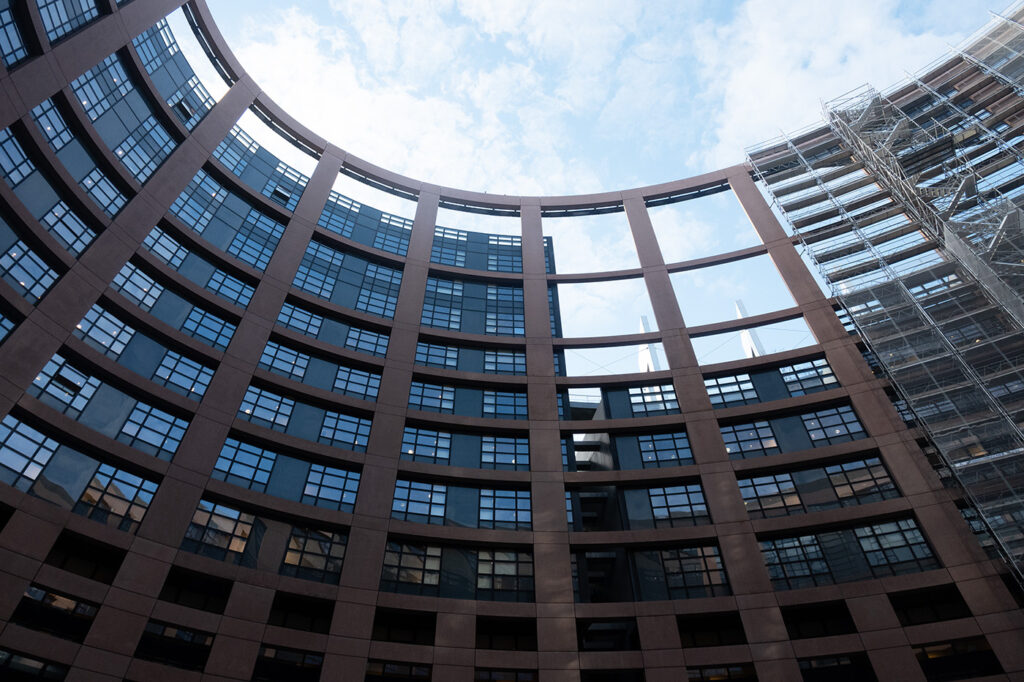
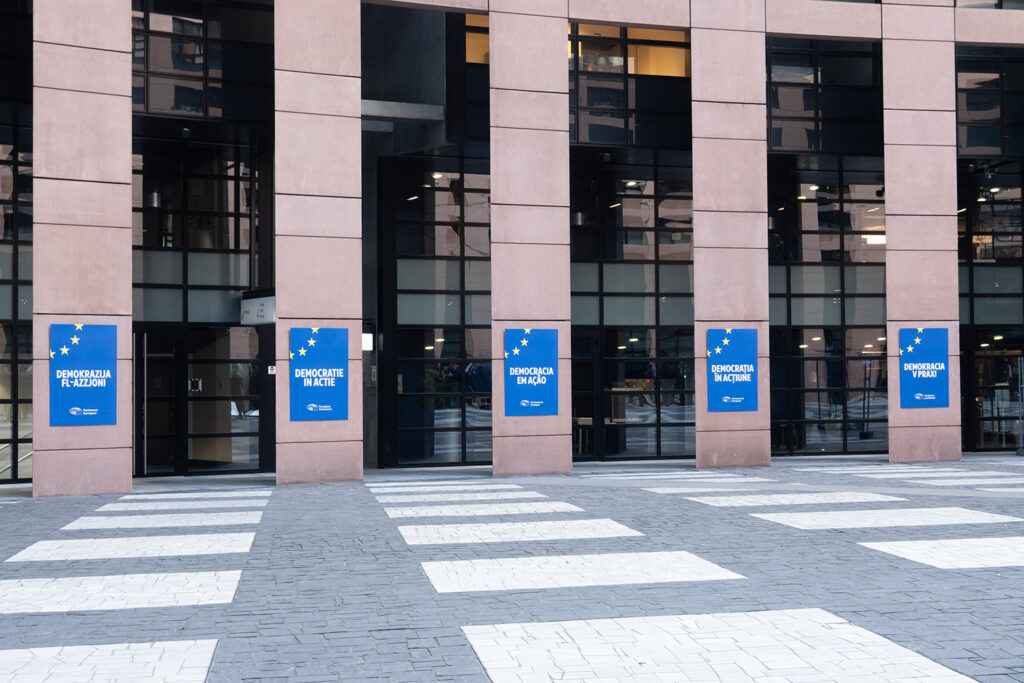
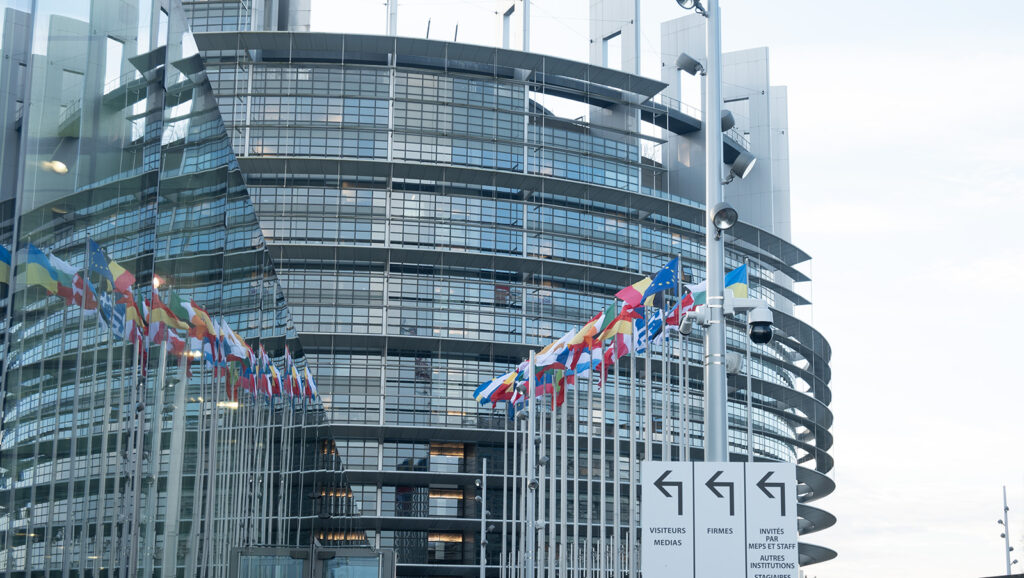
CHAPTER 2: Bright spots
How would you like your coffee?
The picture could be an illustration of the productivity difference between the US and Europe. At the top (a queue of people waiting for a coffee drive-in somewhere in the US), you will undoubtedly get your coffee productively and quickly. At the bottom (the terrace of the legendary Les Deux Magots in Paris), things will be a bit slower; the coffee there will also probably be more expensive. We asked some European what they preferred: fast and productive, or a bit slower and cosy.
2.1 Income Inequality
Income inequality: What does it mean?
Income inequality is measured by the Gini coefficient. A lower coefficient indicates a more equal income distribution. The Gini coefficient in the European Union is 0.30, in the United States it’s 0.41. This means that incomes in the EU are more evenly distributed. The reason? In the EU there are progressive taxes and a strong social security system for healthcare, pensions, etc. In the US there are fewer progressive taxes and a less extensive social security system.
Is income inequality a bad thing?
The income inequality in the US is higher than in the EU, but is this a bad thing for the United States? “In the US many believe in the American Dream, the idea that people get what they deserve. So, they care less about income inequality”, says researcher Kateryna Tkach. The two regions (EU – US) have very different ideas about income inequality. “Americans focus on merit, believing that income reflects effort. Europeans care more about fairness and sharing wealth more evenly”, says Tkach. The perception of the population on income inequality plays a role. Americans do not see this as a problem, and because they perceive it that way, it will also have less impact on them. “What people think and feel about inequality matters most to them, it matters more than how low or high the income inequality actually is”, says Tkach.
Well-being and economy
Still, lower income inequality is an economic bright spot, because it affects the well-being and the economy of countries. “Studies show that when the income inequality is higher, people tend to feel less satisfied with their lives and jobs. It can cause people to be less happy”, according to Tkach. And in addition, the relatively low-income inequality in the EU also has an economic impact. “Studies show that countries with less inequality often have a stronger economic growth”, says Tkach. “Europe’s lower level of inequality may help the economy and make life better for individuals too. It makes the economy in the EU more stable and resilient.”
2.2 The Scandinavian Stability
The Scandinavian countries—Norway, Sweden, Denmark, and Finland—are often seen as examples of economic stability, innovation, and social welfare. While many see them as leaders in modern government and equality, they face the same challenge as the rest of Europe: a reluctance to use their wealth to support local innovation. This issue was highlighted in the Draghi Report, which calls for a bolder approach to funding new businesses and helping them grow.
The Report also provides a clear plan for change. If Scandinavian governments and financial institutions take its advice, they have a chance to support a new generation of successful companies. This requires not only changes in the law but also a change in attitude. People need to be more willing to take risks, and a part of the savings in pension funds should be used to support start-ups.

There are already signs of change. Sweden’s pension funds are starting to invest directly in start-ups, and Norway’s savings fund is being encouraged to take more active positions in private companies. If these efforts grow, Scandinavia could become a leader not just in innovation but also in funding it.
Draghi’s message to Scandinavia is clear: wake up. The cost of doing nothing is too high. If local money is not invested in local start-ups, other countries—especially the U.S.—will take the opportunity. The Report calls on Europe to make it easier for large funds to invest in start-ups and to remove the rules that make it difficult for pension funds and national savings funds to support new businesses.
2.3 European Champions
In the Draghi report, it is stated that 30% of the European ‘unicorns’, startups that went on to be valued over 1 billion USD, relocated their headquarters abroad. Mainly to the U.S., but not all of them did.
The European economy has some bright spots, and a few champions as well. Big companies that did succeed on the international playing field, and who still play a big role.
AB InBev: Anheuser-Busch InBev is an international beer distributor. Belgians biggest company distributes its beverages in over 130 countries, making it the biggest beer producer worldwide. Although they merged with many other companies outside the European Union, their headquarters remained in Belgium. Even after they merged with America’s biggest brewery: Anheuser-Busch. They produce world famous beers such as Stella Artois, Jupiler, Budweiser and Corona
ASML: Eindhoven, Netherlands is home to a company, ASML. They develop and produce lithography machines: the machines necessary to make microchips. ASML is at the forefront of this industry, making it a crucial player in the field.
In the 1980’s they started out in a shed next to the Philips factory, before the tech giant Philips poured in investments in the company. After years of researching, bringing out state-of-the-art lithography machines, and expanding their business internationally, they became the world leader in lithography innovation. They have 15 offices worldwide in the United States, Europe and mainly in east-Asia, but their headquarters remain in the Netherlands.
Spotify: The biggest music streaming industry is a Swedish company. It was founded in 2008, to combat the illegal piracy of music. Before Spotify, streaming music was only possible via illegal sites such as LimeWire and Pirate Bay, who didn’t pay the artists. Spotify launched their platform where you could stream music with advertisements, and a 10-euro subscription got rid of those advertisements hoping that people would pay for them. Today, they have more than 246 million paying subscribers.
CHAPTER 3: Coming to a conclusion
Despite the concerns raised in the Draghi Report about Europe’s economic future, it’s clear that not everything is “doom and gloom.” While Europe faces challenges such as overregulation, reliance on “imaginary mattress” savings, and competition from U.S. and Chinese markets, there are also significant bright spots. Scandinavia’s growing investment in local start-ups, Europe’s lower income inequality, and the global success of companies like AB InBev, ASML, and Spotify demonstrate that Europe has the potential to compete on a global stage.
The Draghi Report calls for a shift in mindset—encouraging European governments, investors, and citizens to take more calculated risks, support innovation, and reduce regulatory burdens. If these changes are made, Europe could retain its start-ups, boost economic growth, and ensure that the wealth generated by its successful companies stays within the continent. The future of Europe’s economy depends on its ability to balance caution with ambition, and as the report emphasizes, the cost of doing nothing is far too high.


